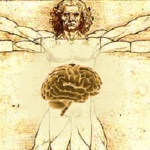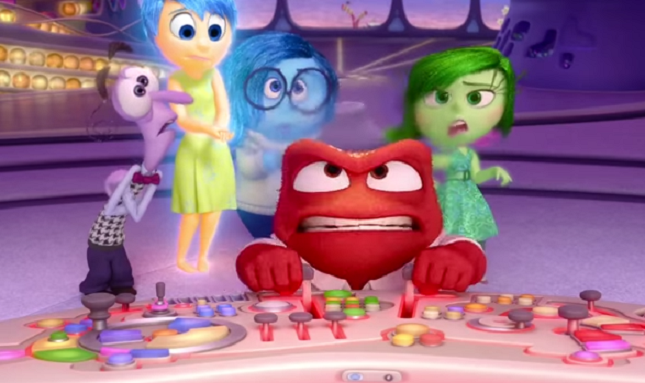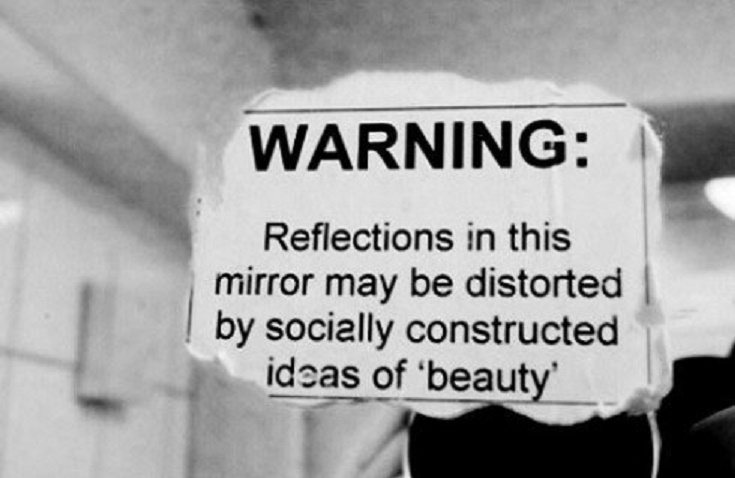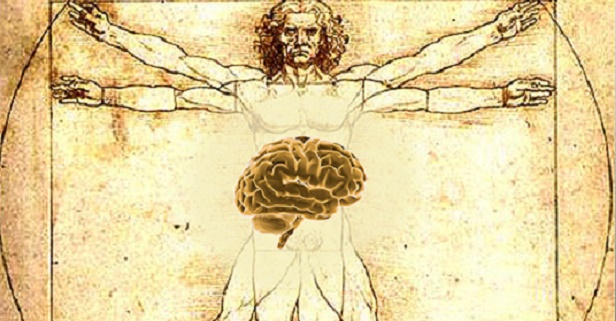Time management and a busy day


As usual, it’s a busy day. This one however is particularly busy and there’s not a lot I can do about it except pull out the magical powers of time management, set some goals and limits on how long I can work on things, keep my head down, and hope for the best. The day will end, eventually, but the amount of work I finish is, in part, up to me. How do I manage to be productive? Well a pseudo-structure method helps.
(more…)The lonely cultist


Listen closely as I am going to divulge a secret from the universe. It will be so earth shattering that you will forever remember this movement. There will be an irrevocable before and after. It has taken me decades to uncover this secret and as the sole owner and guardian of it, I am trusting part of it to you. You can be a part of something larger than yourself, find secret truths, and if you are ready to receive them, find your own. There are secrets in this life hidden just beyond human sight and they are waiting for you to find them. They are calling out to you in the wind. Do you hear them? Are you ready?
(more…)Day 340: Writing… a lot.


This is how I start all my technical writing.
Another day, another set of problems. So what better way to put off my writing for the day than to write about not wanting to write. I feel like I’m living in a meme all of a sudden. Today I’ve got about 4353453421 things to write, give or take 4. Is it odd that I would rather be writing this than any of the stuff that matters?
Day 339: What will school look like?


Here in the US we paused, it was only for a moment, it wasn’t long enough, and not everyone did it, but we paused. Then just as quickly as we tried to adapt to the changing times we went back to pretending everything was normal. Beaches opened, restaurants opened, bars opened, we saw celebrations and parties and we ignored a single digit daily death count, which turned into a double digit, then triple digit, now we’re hovering in at roughly 1000 deaths a day from the pandemic.
Trumped: Why the election is a symptom of a bigger problem

Right now you are probably thinking that I am going to unleash some poorly thought out diatribe about president elect Trump. No, that is not going to happen. It is not going to happen because he is not the problem, you are the problem, I am the problem, and we are the problem. That goes for those of you who are atheists, Catholics, Muslims, conservatives and liberals, or anything in-between.
The science behind real life zombies

In the spirit of Halloween we bring you the science fact and fiction behind the undead. Zombies, those brain loving little guys, (and girls) are everywhere. Sure, we are all familiar with the classic zombie, but did you know that we aren’t the only zombie lovers out there? It turns out that nature has its own special types of zombies, but this isn’t a science fiction movie, this is science fact! Sometimes fact can be scarier than fiction, so let’s dive in.
Study uncovers brain changes in offending pedophiles

New research reveals that certain alterations in the brain may be present in pedophiles, with differences between hands-on offenders and those who have not sexually offended against children.
Female brains change in sync with hormones

Although it has already been known for some time that the brain does not remain rigid in its structure even in adulthood, scientists have recently made a surprising discovery. The brain is not only able to adapt to changing conditions in long-term processes, but it can do this every month.
Scientists find new path in brain to ease depression

Scientists have discovered a new pathway in the brain that can be manipulated to alleviate depression. The pathway offers a promising new target for developing a drug that could be effective in individuals for whom other antidepressants have failed. New antidepressant options are important because a significant number of patients don’t adequately improve with currently available antidepressant drugs.
Sugar gives bees a happy buzz

An unexpected sugary snack can give bees a little buzz and appears to lift their mood, even making them optimistic, according to research that suggests pollinators have feelings, too. Since emotions are subjective and difficult to measure—particularly in animals—researchers looked at how bees’ behavior changed after they were given a sip of sucrose solution.
Why do more men than women commit suicide?

Why do more men die when they attempt suicide than women? The answer could lie in four traits, finds scientists. There are over 6,000 British lives lost to suicide each year, and nearly 75 per cent of those are male. However, research has found women are more likely to suffer from depression, and to attempt to take their own life.
Linking perception to action

Researchers studying how the brain uses perception of the environment to guide action offer a new understanding of the neural circuits responsible for transforming sensation into movement.
MRI scanner sees emotions flickering across an idle mind

As you relax and let your mind drift aimlessly, you might remember a pleasant vacation, an angry confrontation in traffic or maybe the loss of a loved one. And now a team of researchers say they can see those various emotional states flickering across the human brain.
Learning to turn down your amygdala can modify your emotions

Training the brain to treat itself is a promising therapy for traumatic stress. The training uses an auditory or visual signal that corresponds to the activity of a particular brain region, called neurofeedback, which can guide people to regulate their own brain activity. However, treating stress-related disorders requires accessing the brain’s emotional hub, the amygdala, which is located deep in the brain and difficult to reach with typical neurofeedback methods.
A visual nudge can disrupt recall of what things look like

Interfering with your vision makes it harder to describe what you know about the appearance of even common objects, according to researchers. This connection between visual knowledge and visual perception challenges widely held theories that visual information about the world — that alligators are green and have long tails, for example — is stored abstractly, as a list of facts, divorced from the visual experience of seeing an alligator.
The relationship between low physical activity and psychotic symptoms

Physical activity can help reduce cardiovascular disease and premature mortality in people with psychological problems. However, there is limited data on exercise in people with serious mental disorders, especially from low- and middle-income countries. This study explored whether complying with the World Health Organization recommendations of 150 minutes of moderate-vigorous exercise per week is related to psychotic symptoms or the diagnosis of a psychosis.
How long do you want to live? Your expectations for old age matter

Why do some people want to live a very long time, while others would prefer to die relatively young? In a latest study, a team of researchers investigated how long young and middle-aged adults in the United States say they want to live in relation to a number of personal characteristics. The results showed that more than one out of six people would prefer to die younger than age 80, before reaching average life expectancy.
Can cell phones make you feel less connected to your friends and family?


Image credit goes to: Eric Pickersgill
In this digital age, with phones at our fingertips, you would think that access to constant communication would make us feel closer to one another. But a new study shows that may not be the case. In fact, cell phone use might actually lead to feeling less socially connected, depending on your gender or cell phone habits.
A dog’s dilemma: Do canines prefer praise or food?

A new study suggests that given the choice, many dogs prefer praise from their owners over food. The study is one of the first to combine brain-imaging data with behavioral experiments to explore canine reward preferences.
Is depression in parents, grandparents linked to grandchildren’s depression?

If you read my blog often, it’s no surprise I suffer from PTSD, depression, and anxiety issues. Maybe it’s from my military service, but maybe it’s my father’s, or his father’s, maybe it’s an insidious family legacy that was just never noticed. This is because having both parents and grandparents with major depressive disorder (MDD) was associated with higher risk of MDD for grandchildren, which could help identify those who may benefit from early intervention.
New neurons created through exercise don’t cause you to forget old memories

Fellow exercise enthusiasts, you can breath a sigh of relief and so can your brain. Research has found that exercise causes more new neurons to be formed in a critical brain region, and contrary to an earlier study, these new neurons do not cause the individual to forget old memories, according to new research.
The mysterious fart

Everyone does it …no, not poop, but fart. Passing gas, fuming, crop dusting, cracking a rat — no matter what you call it — everyone fart, but why? Researchers have published an article devoted to the review of gaseous neurotransmitters of microbial origin and their role in the human body.
How our brain puts the world in order

The world around is complex and changing constantly. To put it in order, we devise categories into which we sort new concepts. To do this we apply different strategies. A team of researchers wanted to find out which areas of the brain regulate these strategies. The results of their study using magnetic resonance imaging (MRI) show that there are indeed particular brain areas, which become active when a certain strategy of categorisation is applied.
Genetic repeats suggest role for DNA instability in schizophrenia

My friend has a glass eye and unless you knew the story you might not think anything of it. His older brother did it. You read that correctly, in a schizophrenic induced confusion he tried to killed him. He never held what happened against his older brother, he was sick, how could he? The courts say, he cannot visit his brother while he’s in prison. This could’ve been avoided with early detection and now international researchers have used a new technique to identify significantly more DNA sequence repeats in patients with schizophrenia than in control individuals.
Chemical changes in the brain affect Alzheimer’s disease

A new study is helping to explain why the long-term use of common anticholinergic drugs used to treat conditions like allergies and overactive bladder lead to an increased risk of developing dementia later in life. The findings show that long-term suppression of the neurotransmitter acetylcholine – a target for anticholinergic drugs – results in dementia-like changes in the brain.
Even when help is just a click away, stigma is still a roadblock

Stigma is a major barrier preventing people with mental health issues from getting the help they need. Even in a private and anonymous setting online, someone with greater self-stigma is less likely to take that first step to get information about mental health concerns and counseling.
Google searches for ‘chickenpox’ reveal big impact of vaccinations

Countries that implement government-mandated vaccinations for chickenpox see a sharp drop in the number of Google searches for the common childhood disease afterward, demonstrating that immunization significantly reduces seasonal outbreaks. That’s one of the findings from a new study that analyzed thousands of Google searches for “chickenpox.”
Why everyone wants to help the sick — but not the unemployed

New research explains why healthcare costs are running out of control, while costs to unemployment protection are kept in line. The answer is found deep in our psychology, where powerful intuitions lead us to view illness as the result of bad luck and worthy of help.
Schizophrenia: The brain has the ability to rescue itself

A team of scientists have shown that the brains of patients with schizophrenia have the capacity to reorganize and fight the illness. This is the first time that imaging data has been used to show that our brains may have the ability to reverse the effects of schizophrenia.
How the brain makes — and breaks — a habit

Not all habits are bad. Some are even necessary. It’s a good thing, for example, that we can find our way home on “autopilot” or wash our hands without having to ponder every step. But inability to switch from acting habitually to acting in a deliberate way can underlie addiction and obsessive compulsive disorders.
Extreme beliefs often mistaken for insanity

In the aftermath of violent acts such as mass shootings, many people assume mental illness is the cause. After studying the 2011 case of Norwegian mass murderer Anders Breivik, researchers are suggesting a new forensic term to classify non-psychotic behavior that leads to criminal acts of violence.
How depression and antidepressant drugs work

Treating depression is kind of a guessing game. Trying to find a medication that works without causing side effects can take months, or more likely, years. However, new research demonstrates the effectiveness of ketamine to treat depression in a mouse model of the disease and brings together two hypotheses for the cause of depression.
Neuroscientists discover new learning rule for pattern completion

Recently, scientists discovered a new learning rule for a specific type of excitatory synaptic connection in the hippocampus. These synapses are located in the so-called CA3 region of the hippocampus, which plays a critical role for storage and recall of spatial information in the brain. One of its hallmark properties is that memory recall can even be triggered by incomplete cues. This enables the network to complete neuronal activity patterns, a phenomenon termed pattern completion.
Research shows body image linked to overall life satisfaction

We’re constantly bombarded by advertisements telling us we are too fat, too thin, not curvy enough, not flat enough — or more often than not — simply not enough. It shouldn’t be a surprise to see that effect our day to day life, like it or not — and it has. Researchers have just published results from a national study on the factors linked to satisfaction with appearance and weight.
Epigenetic study of lactose intolerance may shed light on the origin of mental illness

A new study on the epigenetics of lactose intolerance may provide an approach to understanding schizophrenia and other complex, serious illnesses. While that may seem odd, both lactose intolerance and schizophrenia are inherited. In addition, neither condition emerges in the first years of life, but rather both appear years or even decades later.
Digital media may be changing how you think

Tablet and laptop users beware. Using digital platforms such as tablets and laptops for reading may make you more inclined to focus on concrete details rather than interpreting information more abstractly, according to a new study. The findings serve as another wake-up call to how digital media may be affecting our likelihood of using abstract thought.
Smartphones uncover how the world sleeps


A pioneering study of worldwide sleep patterns combines math modeling, mobile apps and big data to parse the roles society and biology each play in setting sleep schedules. The study used a free smartphone app that reduces jetlag to gather robust sleep data from thousands of people in 100 nations. The researchers examined how age, gender, amount of light and home country affect the amount of shut-eye people around the globe get, when they go to bed, and when they wake up.
Measuring happiness on social media

Happiness. It’s something we all strive for, but how do we measure it — as a country? A global community? Not so surprisingly, researchers are turning to social media to answer these questions and more. In a newly published study, computer scientists used two years of Twitter data to measure users’ life satisfaction, a component of happiness.
What scientists know — and don’t know — about sexual orientation

Over the last 50 years, political rights for lesbian, gay, and bisexual (LGB) individuals have significantly broadened in some countries, while they have narrowed in others. In many parts of the world, political and popular support for LGB rights hinges on questions about the prevalence, causes, and consequences of non-heterosexual orientations.
Transfer of gut bacteria affects brain function and nerve fiber insulation

Quick hide, shut your windows and lock your doors, are you alone? No, you aren’t that’s the problem and what’s worse, you are being controlled. This isn’t a plot for the latest thriller, this is the findings of a new study and adds to growing number of studies showing that our bacteria is more of us than we realize. In fact, the study found that specific combinations of gut bacteria produce substances that affect myelin content and cause social avoidance behaviors in mice.
























































